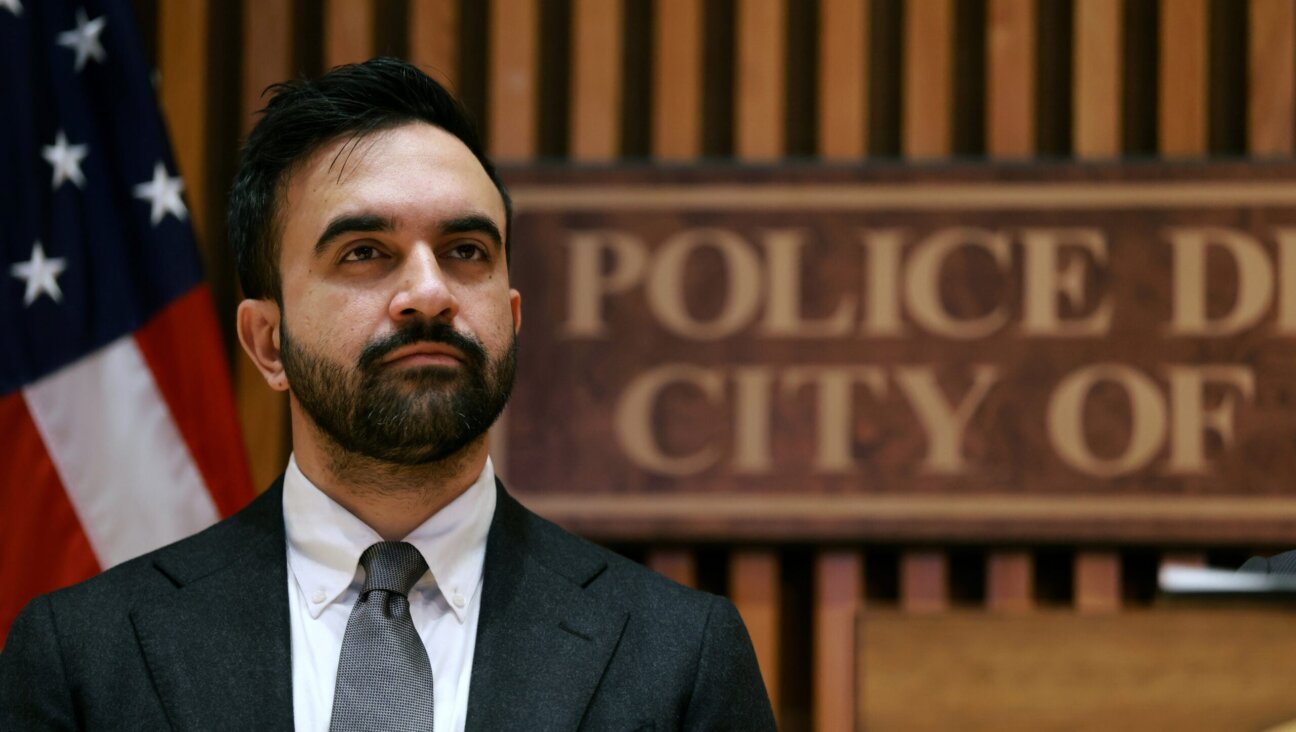‘Mind your own business,’ Israel’s Diaspora minister tells US ambassador about judicial reform urging
The Biden administration is urging the Israeli government to ‘build consensus’ around widely opposed proposed changes.

U.S. Ambassador to Israel Thomas Nides speaks at the Conference of Presidents of Major American Jewish Organizations in Jerusalem, Feb. 19, 2023. (Noam Revkin Fenton/Flash90)
(JTA) — The Israeli minister responsible for relations with Jews in the Diaspora has a message for the government of the country where most of them live: “Mind your own business.”
Amichai Chikli made the comment Sunday in a radio interview in Israel, where he was asked to address recent comments by U.S. ambassador Tom Nides, who said he was urging Israeli leaders to “pump the brakes” on their controversial effort to change the country’s judiciary.
Nides was echoing sentiments expressed by U.S. President Joe Biden about the judicial reform proposal, which would give the Knesset, Israel’s parliament, the power to overrule Supreme Court decisions. Biden said last week that both that checks and balances are part of the “genius” of democracy and that “building consensus for fundamental changes is really important.”
Nides said on a politics podcast that the Biden administration was pressing Israeli prime minister Benjamin Netanyahu to seek agreement rather than push the reforms through quickly. “We’re telling the prime minister, as I tell my kids, pump the brakes. Slow down, try to get a consensus, bring the parties together,” he said.
Chikli had a retort: “I say to the American ambassador, put on the brakes yourself and mind your own business,” he said. “You aren’t sovereign here, to get involved in the matter of judicial reform. We will be happy to discuss foreign and security matters with you. But respect our democracy.”
The message was in line with one that Chikli issued during his first public comments as Diaspora minister on American soil last month. And Netanyahu, too, appeared to reject the urging by Biden and Nides in a speech Sunday in Jerusalem to the Conference of Presidents of Major American Jewish Organizations, an umbrella that includes a broad range of groups.
“All democracies should respect the will of other free peoples, just like we respect their democratic decisions,” Netanyahu said. (His speech focused largely on the threat posed by Iran.)
Israeli president Isaac Herzog, who is trying to broker a compromise that would tone down the proposals that have drawn dire warnings from business leaders, army commanders and democracy watchdogs, said Sunday that he believes a deal could be reached in a matter of days. But it is unclear how seriously Netanyahu and his allies in the government are taking the possibility of compromise, with a top minister, Bezalel Smotrich, vowing on Sunday to press forward with the legislative process.
In Israel, opposition to the proposed reforms appears only to have grown, with protests this weekend swelling to more than 220,000 people across several cities, according to their organizers. That would be equivalent to nearly than 2.5% of the country’s population.
In the United States, the proposed reforms have caused angst among some American Jews who fear that Israel increasingly does not reflect their values.
The moment is also exposing Israel to renewed criticism. “Do you think that democracy is in peril in Israel right now?” Sen. Bernie Sanders, the independent from Vermont, was asked on CBS News’ “Face the Nation” Sunday morning. “I do,” Sanders said, saying as he has before that the United States should “put some strings attached” to the aid it delivers to Israel. “You cannot run a racist government, you cannot turn your back on the two-state solution, you cannot demean the Palestinian people there, you just can’t do and come to America and ask for money.”
Host Margaret Brennan asked whether he had spoken to the Biden administration about his feelings. “They’ve been very careful giving criticism of the Netanyahu government,” she noted.
“I am not careful about it,” Sanders responded. “I am embarrassed that in Israel you have a government of that nature right now.”
This article originally appeared on JTA.org.















